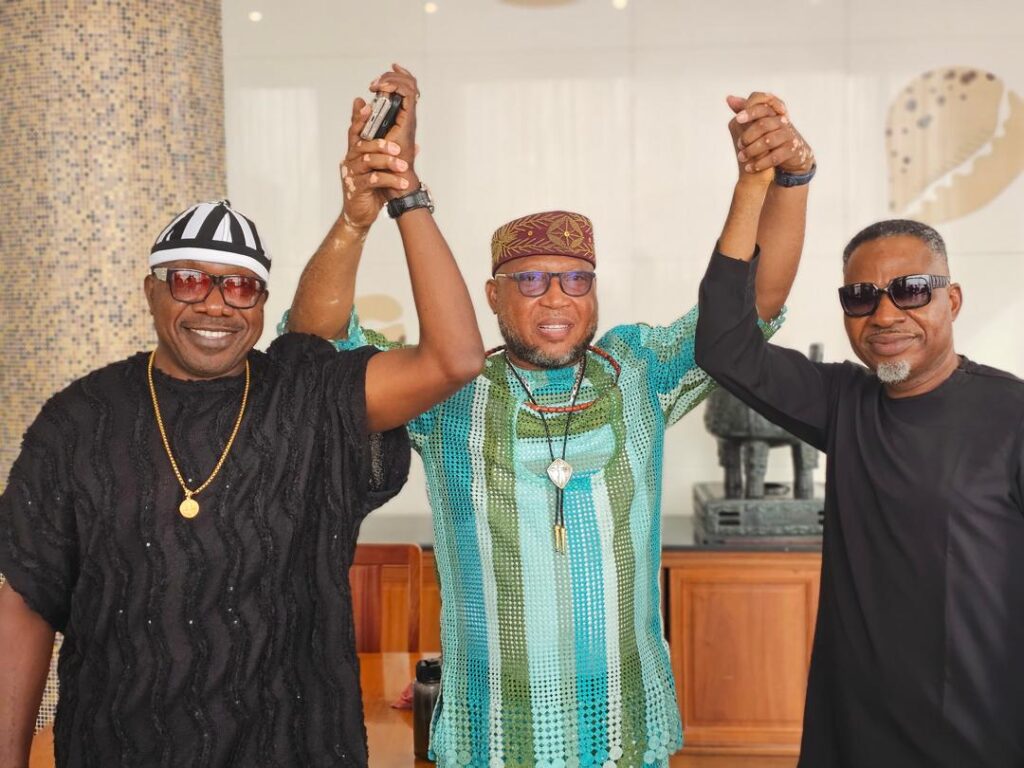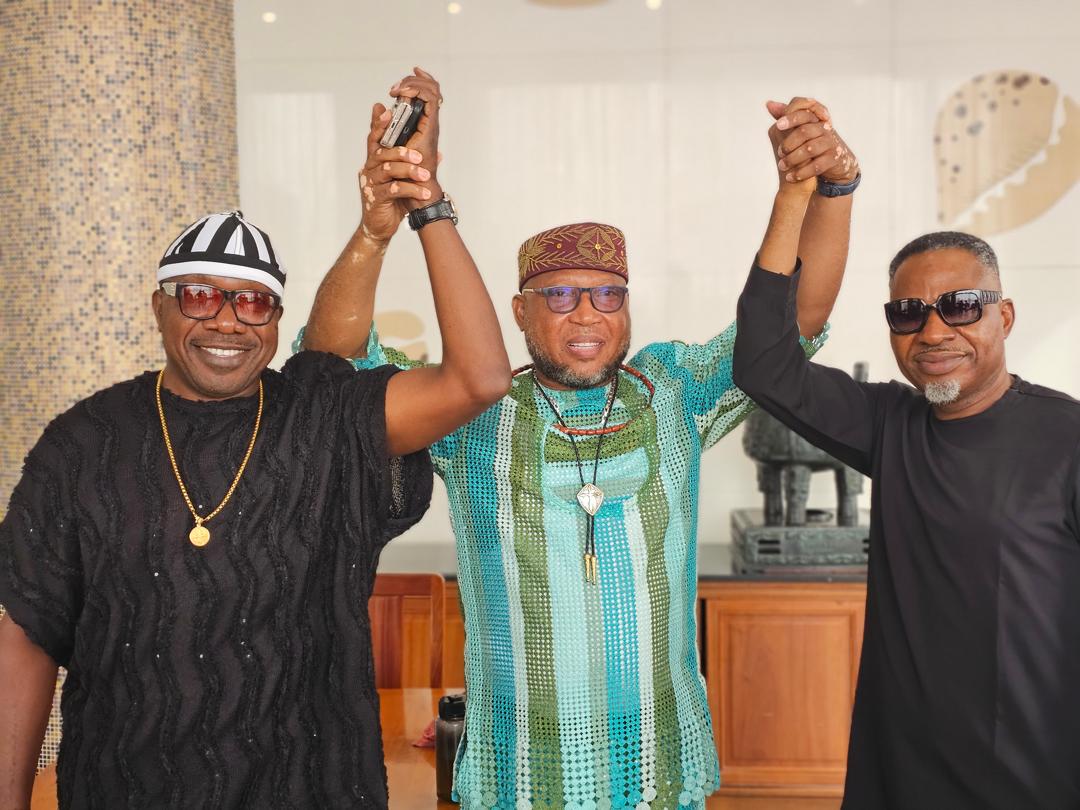The Performing Musicians Employers Association of Nigeria (PMAN) has officially resolved its prolonged leadership crisis, merging its once-divided executive bodies under one unified structure.
The breakthrough came after a reconciliation meeting at the PMAN National Secretariat in Lekki, Lagos, following a court ruling affirming Chief Fruitful Mekwunye as National President.
In a show of maturity, Mekwunye extended a peace offer to the faction led by music star Sunny Neji, who in turn accepted the court’s decision and joined forces for the greater good of the industry.
“This is not about positions—it’s about progress,” Chief Mekwunye said. Neji, now PMAN’s 1st Vice President, added, “We’ve laid down pride and picked up purpose.”

Key changes include the appointment of Boniface Itodo (Aita Bonny) as General Secretary, with Raymond Lasisi (Baba Ray) becoming Assistant General Secretary. Veteran artist Zaaki Azzay now serves as 2nd Vice President, while Stephen Michael (Ruggedman) and others joined as Ex-Officio members.
A newly formed Strategic Committee headed by Faga Bam Paul and the inclusion of skilled professionals in various committees signal a new operational focus. The agreement was formally ratified through a signed Memorandum of Understanding.
“This is the rebirth of PMAN,” said Itodo. “We’re united, and the future is bright for Nigerian musicians.”
The mood at the close of the meeting was hopeful, signaling a new chapter for Nigerian performing musicians. With its house finally in order, PMAN is now better positioned to advocate for artists’ rights, shape policy, and drive structural reforms in Nigeria’s vibrant music industry.
As the music plays on, Nigeria’s performing artists are, finally, dancing to the same beat.

